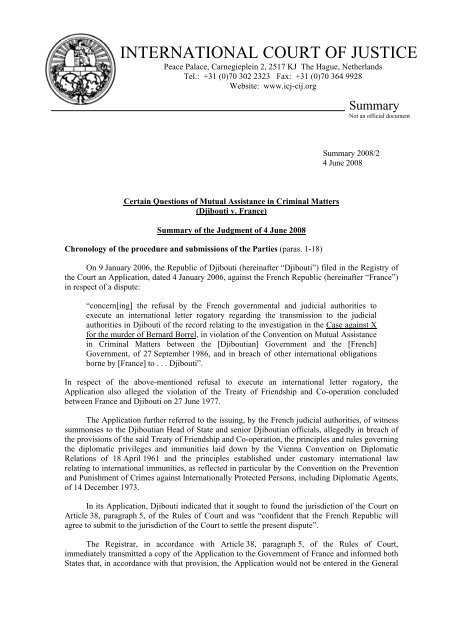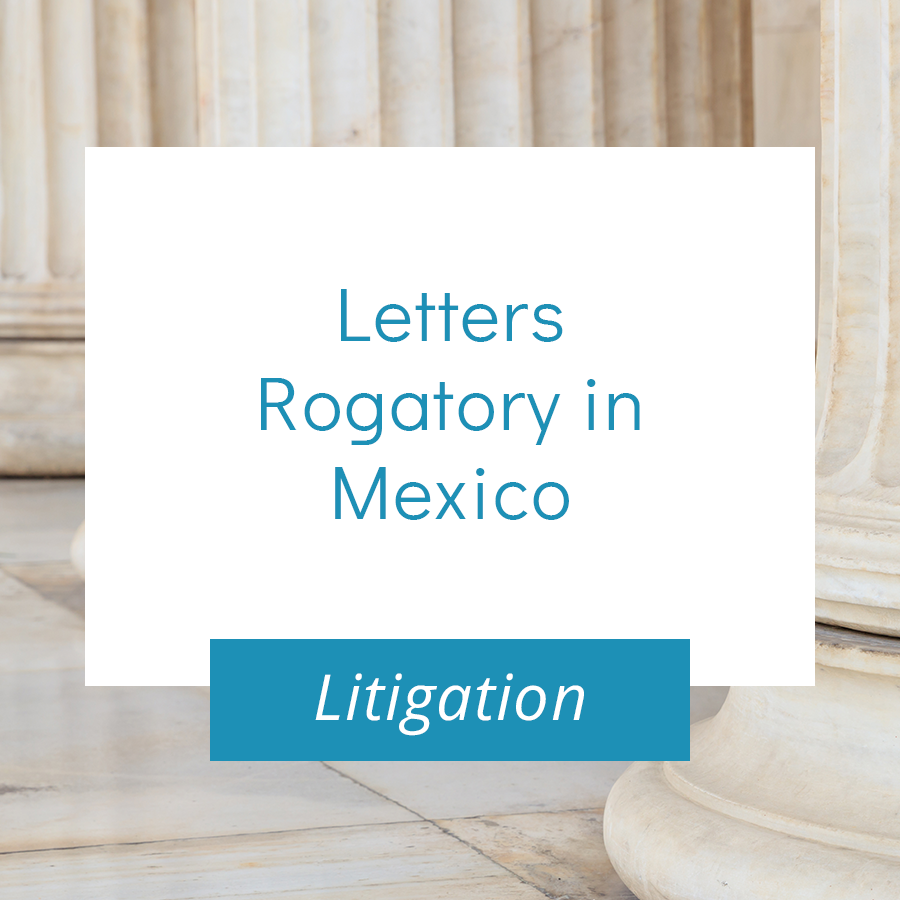Letters Rogatory vs. Mutual Legal Assistance Treaties: Key Differences Discussed
Letters Rogatory vs. Mutual Legal Assistance Treaties: Key Differences Discussed
Blog Article
Letters Rogatory Explained: Facilitating Legal Collaboration In Between Countries

Meaning of Letters Rogatory
Letters rogatory are official demands made by a court in one jurisdiction to a court in an additional territory, seeking support in obtaining proof or statement for a lawful case. This step-by-step mechanism is essential in the context of worldwide regulation, where lawful systems may differ, and cross-border cooperation is necessary. Letters rogatory help with the event of details that may be vital for settling cases, particularly in instances entailing intricate global issues.
Commonly, these requests arise in civil, criminal, or administrative issues where an event needs proof that lies outside the jurisdiction of the asking for court. The letters serve as a means to ensure that the principles of due procedure are maintained, allowing courts to accessibility proof that might or else stay unattainable as a result of geographic or lawful barriers.
Making use of letters rogatory is controlled by worldwide treaties, bilateral arrangements, or domestic regulations, which mark the treatments and responsibilities of the courts included. It is crucial to note that the execution of such requests is not guaranteed; they depend on the legislations and techniques of the jurisdiction getting the letter. Hence, letters rogatory are a crucial device for cultivating lawful cooperation and making certain justice across boundaries.
The Process of Issuing Letters Rogatory
Issuing letters rogatory includes a structured process that guarantees conformity with both domestic and international legal criteria. Initially, the asking for party, typically a court or legal authority, prepares an official demand describing the nature of the help sought, the proof or details needed, and the lawful basis for the demand. This file should be precise to promote understanding by the foreign jurisdiction.

The next step entails sending the letters rogatory to the assigned foreign authority. This is usually done through polite networks or global legal assistance structures, making certain that the demand is received and acknowledged by the foreign court. The international court then refines the demand according to its own legal procedures, inevitably replying to the asking for event with the in-demand details or proof, hence helping with worldwide legal cooperation.
Importance in International Law
The relevance of letters rogatory in international legislation can not be overstated, as they act as an important device for judicial cooperation throughout boundaries. These formal ask for aid in legal issues enable courts in one territory to inquire, proof, or the presence of witnesses from an additional jurisdiction, thereby promoting the management of justice in transnational situations.
Letters rogatory are especially essential in the context of globalization, where lawful disputes commonly span several countries. They enable the collection of evidence that may or else be inaccessible, ensuring that lawful procedures are notified and reasonable. By fostering collaboration between judicial systems, letters rogatory assistance support the rule of legislation and advertise common respect amongst nations.
Moreover, the use of letters rogatory shows a dedication to global standards and principles of participation, reflecting the interconnected nature of modern-day legal practices. It highlights the relevance of sticking to recognized procedures and treaties, such as the Hague Convention, which offers a structure for these demands - Letters rogatory. Ultimately, letters rogatory enhance the efficacy of legal processes, making sure that justice is not impeded by geographical borders
Challenges and Limitations
In spite of their relevance, letters rogatory face several obstacles and constraints that can restrain their efficiency. One primary concern is the varying lawful frameworks and treatments across territories, which can lead to misunderstandings and link delays in the implementation of requests. Different countries might have unique needs for the validity of letters rogatory, making complex the process further.
In addition, the usually lengthy nature of international lawful collaboration can prevent timely access to evidence or witnesses. This delay may adversely impact continuous investigations or legal process, particularly in instances needing immediate action. The absence of resources and training in some jurisdictions can result in not enough handling Extra resources of requests, leading to poor or insufficient actions.
Countries with much less formal lawful systems might struggle to abide with the procedural roughness expected in letters rogatory. These difficulties demand continuous discussion and reform to boost the efficacy of letters rogatory in legal participation.
Instance Studies and Examples

Alternatively, difficulties can emerge, as seen in a case including a European nation seeking evidence in a recurring criminal matter from a non-EU nation - Letters rogatory. The procedure was postponed due to administrative obstacles and varying legal requirements, inevitably hindering the investigation
These instances illustrate that while letters rogatory can help with global cooperation and speed up lawful proceedings, they likewise highlight the demand for clear interaction and understanding of legal frameworks in between countries. Such study emphasize the relevance of refining this tool to improve efficiency and efficiency in worldwide legal matters.
Final Thought
In recap, letters rogatory work as a vital device for promoting lawful participation in between countries, making sure the collection of evidence and testament across jurisdictions. Their value in global legislation can not be overemphasized, as they promote due procedure and boost the efficiency of cross-border legal proceedings. Obstacles such as varying legal structures and political tensions might hinder their efficiency. Proceeded initiatives to boost the procedure and streamline are vital for cultivating stronger global judicial next page collaboration.
Letters rogatory are official demands made by a court in one jurisdiction to a court in one more territory, seeking support in getting evidence or testament for a legal proceeding. The requesting event, normally a court or lawful authority, drafts a formal demand describing the nature of the assistance sought, the evidence or details needed, and the lawful basis for the demand. The foreign court after that refines the request according to its very own lawful procedures, eventually responding to the asking for party with the in-demand details or evidence, therefore helping with global legal collaboration.
In addition, the usage of letters rogatory shows a commitment to global norms and principles of teamwork, showing the interconnected nature of modern-day legal methods.International lawful teamwork via letters rogatory is not without its real-world effects, as shown by numerous case studies that highlight both difficulties and successes.
Report this page